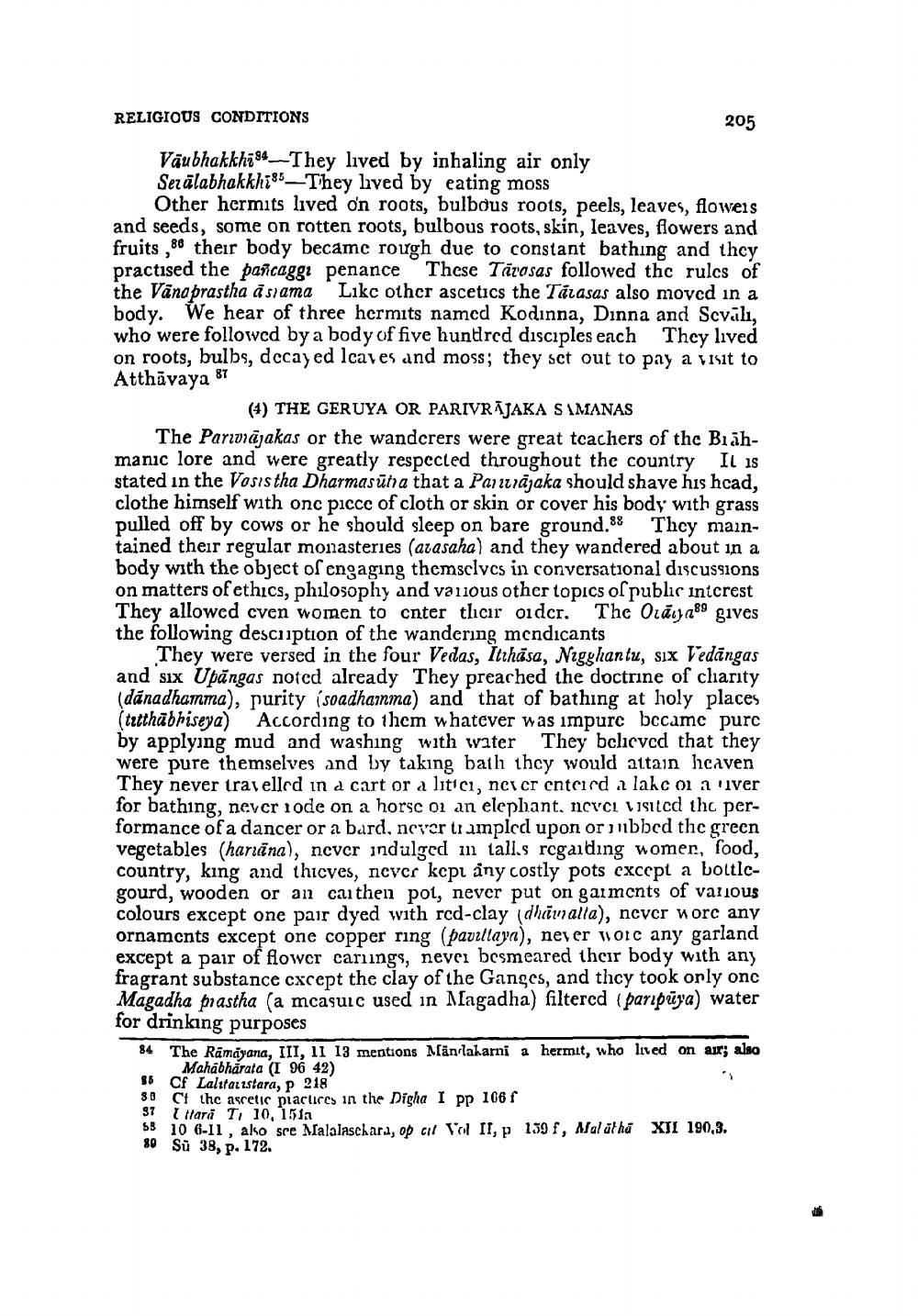________________
RELIGIOUS CONDITIONS
205
Väubhakkhi94_They lived by inhaling air only Serālabhakkhi85–They lived by eating moss
Other hermits lived on roots, bulbous roots, peels, leaves, flowers and seeds, some on rotten roots, bulbous roots, skin, leaves, flowers and fruits , 80 their body became rough due to constant bathing and they practised the pancaggi penance These Tārosas followed the rules of the Vānaprastha a szama Likc other ascetics the Tarasas also moved in a body. We hear of three hermits named Kodinna, Dinna and Scvalı, who were followed by a body of five hundred disciples each They lived on roots, bulbs, decayed lcaves and moss; they set out to pay a visit to Atthāvaya 87
(4) THE GERUYA OR PARIVRĀJAKA SIMANAS The Parivājakas or the wanderers were great teachers of the Biāhmanic lore and were greatly respected throughout the country It is stated in the Vosistha Dharmasūtra that a Parizrājaka should shave his hcad, clothe himself with one piccc of cloth or skin or cover his body with grass pulled off by cows or he should sleep on bare ground.88 Thcy maintained their regular monasteries (arasaha) and they wandered about in a body with the object of engaging themselves in conversational discussions on matters of ethics, philosophy and various other topics of public interest They allowed cven women to cnter tlıcır older. The Orāt, 289 gives the following description of the wandering mendicants
They were versed in the four Vedas, Itihasa, Nigghantu, sıx Vedāngas and six Upāngas noted already They preached the doctrine of cliarity (dánadhamma), purity (soadhainma) and that of bathing at holy places (titthābhiseya) According to them whatever was impurc became purc by applying mud and washing with water They believed that they were pure themselves and by taking bath they would attain heaven They never travelled in a cart or a litici, nccr cntaird a lakco a iver for bathing, never rode on a horse ou an elephant, nevci visited the performance of a dancer or a burd, never trampled upon or unbbed the green vegetables (haruana), never indulged in tall.s regarding womer, food, country, king and thicves, never kcpı any costly pots except a bottlegourd, wooden or an caithen pot, never put on garments of various colours except one pair dyed with rcd-clay dhīmalla), never worc any ornaments except one copper ring (pavillaya), never worc any garland except a pair of flower carrings, never besmeared their body with any fragrant substance cxcept the clay of the Ganges, and thcy took only onc Magadha prastha (a mcasuic used in Magadha) filtered paripuya) water for drinking purposes 84 The Rāmāyana, III, 11 13 mentions Mändlakarni a hermit, who lived on air; also
Mahabharata (I 96 42) 86 Cf Lalutatzstara, P 218 80 Cf the ascetic piactices in the Digha I pp 106 f 97 Hari T, 10, 151a $ 10 6-11, ako sce Malalaschara, op cil Vol II, p 159 f, Alaláthā XII 190,3. 80 Sú 38, p. 172.




